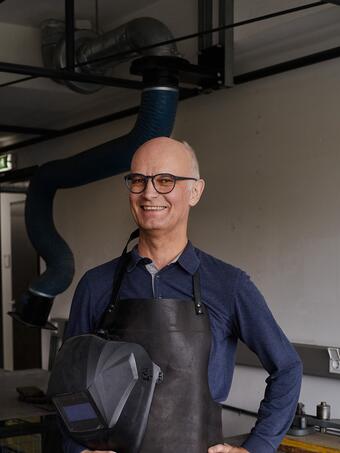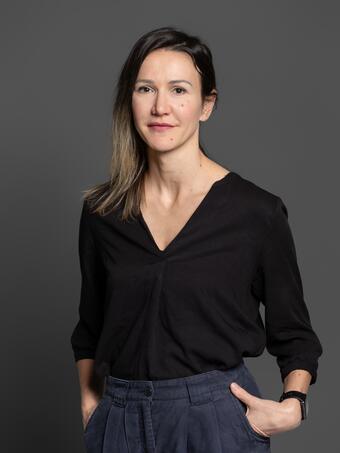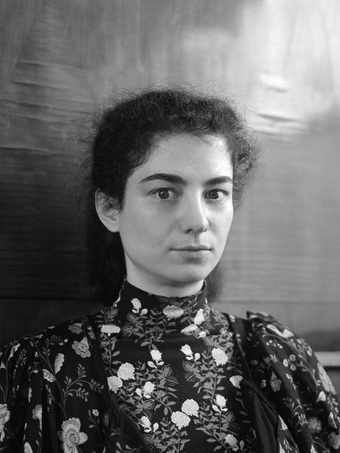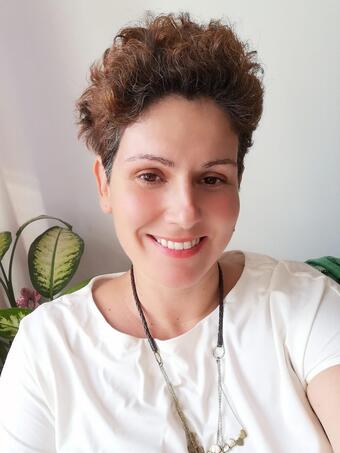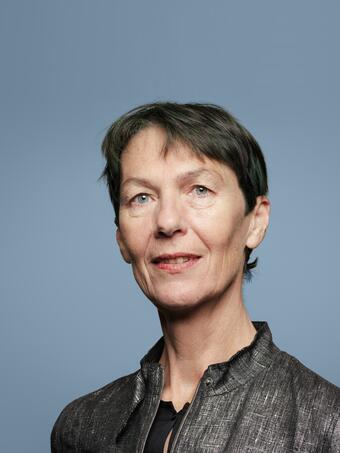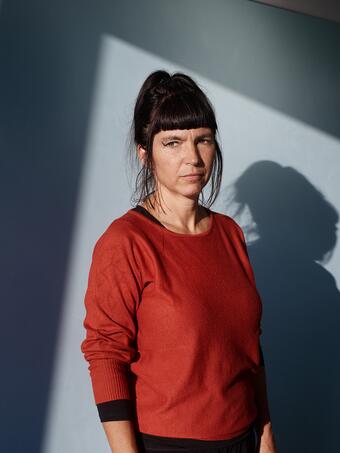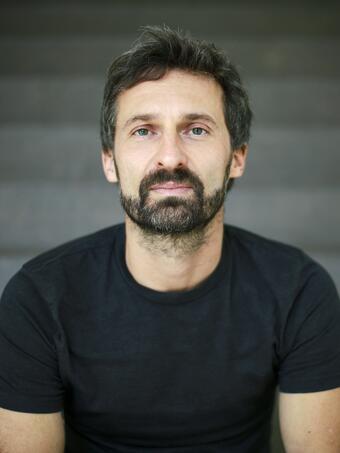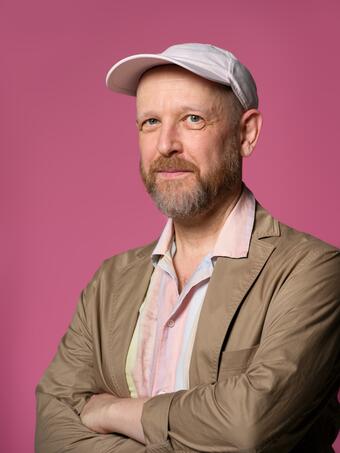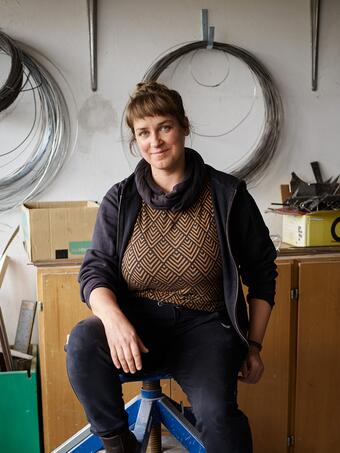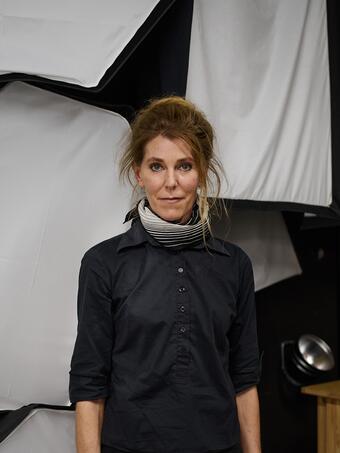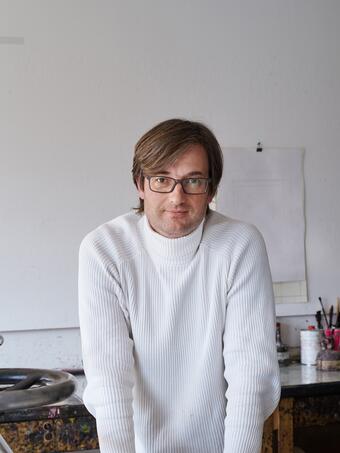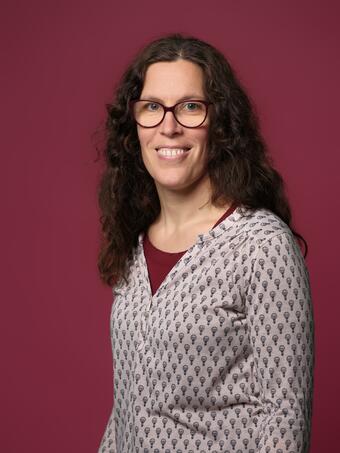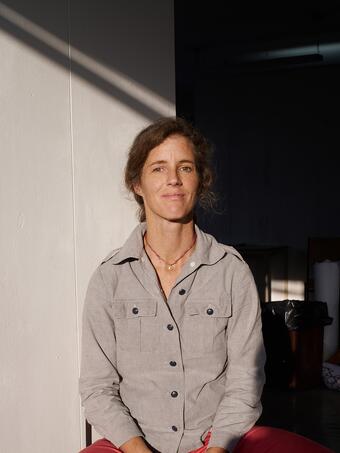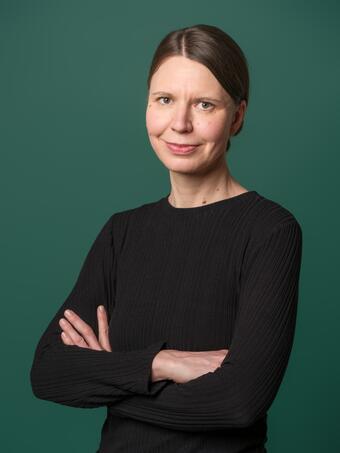Teacher Training for Art Education
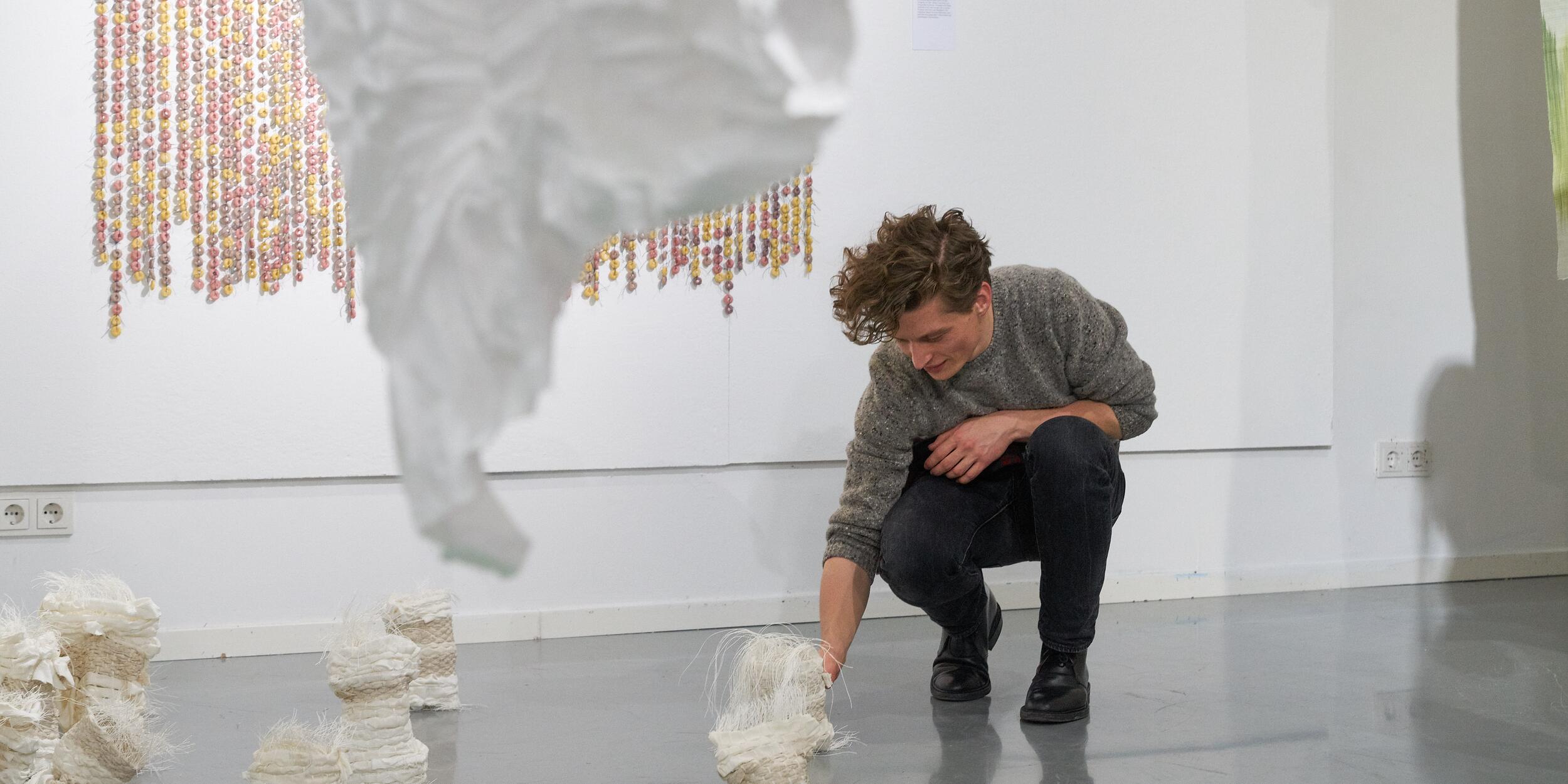
The teacher training programme in the subject of Art Education explores the field of tension between the production, reception, and communication of the arts, images, and media. To what extent is production always also a transmission of knowledge? Why are creating and viewing inseparable? The goal of the programme is the development of an artistic and practical, researching and educational approach to the arts, images and media.
Department of Studies & Examinations
+43 676 88122 492
studienabteilung@moz.ac.at
Length of course
8 semesters / 240 ECTS credits
Language
German
Application period
1st date: 1.2.-10.6.2025
2nd date: 1.7.-5.8.2025
Portfolio advice
can be arranged at any time at kunstwerk@moz.ac.at
Facts
Career paths
The teacher training programme for secondary education consists of a Bachelor's and a Master's programme and trains students to become teachers in their chosen subjects.
The Bachelor's degree programme in Secondary Education is designed to be completed within 8 semesters. Two teaching subjects must be chosen, in addition to which students are required to complete free elective subjects, a general grounding in educational science, and integrated teaching placements. The subject Art Education can be combined with any other subject.
The bachelor's degree programme in Art Education provides basic training in both the subject itself and its didactics, as well as educational sciences and teaching practice. It provides the preliminary professional training for a teaching career at middle and high schools.
In addition to the teaching profession, graduates also well qualified to enter professions outside of school: in the field of fine arts, art education, conceptual work in art and cultural institutions, independent work with children and young people, art and cultural studies, academic as well as artistic research or in the context of adult education.
Specialising in in aesthetic and cultural education opens up promising opportunities in not only in education, academia or in the field of social work, but also in the world of business and commerce, as there are many areas of overlap. Artistic approaches or creative problem-solving processes certainly play a role in the development of new commercial products and applications.
Depending on the subject with which they combine Art Education, students can already choose a stronger focus in artistic and practical work or on academic research and eudcational work during the course of their studies.
General study information
The teacher training programme at secondary level is carried out in cooperation with the following partner institutions (Central Region Partnership):
Study in Salzburg
- Paris Lodron University Salzburg (PLUS)
- Salzburg University of Teacher Training (PHS)
- Edith Stein University of Teacher Training (KPH)
- Mozarteum University Salzburg (MOZ)
Study in Linz
- Johannes Kepler University Linz (JKU)
- University College of Teacher Education Upper Austria (PH OÖ)
- Private University College of Education of the Diocese of Linz (PHDL)
- Linz University of Arts (UFG)
- Anton Bruckner Private University (ABPU)
- Catholic Private University Linz (KU Linz)
Art education is studied as one of two subjects within the Austrian teacher training programme; the subject Art Education can be combined with any other subject. In addition to their two teaching subjects, students will complete courses in educational sciences as well as teaching placements in schools.
The subject-specific part of the degree programme is divided into three major areas, which are interlinked by the common interest in the artistic and research-based approach to the production, reception and teaching of art, images and media: Subject didactics, subject studies and artistic practice.
Subject didactics comprises lectures, exercises, proseminars and seminars. These address the understanding of the subject of art education, its historical development, the institutional framework and guidelines. They provide impulses for reflection on the activity as an art teacher and suggestions for the development of different approaches and methods for teaching the subject matter.
With its lectures, exercises, proseminars and seminars, subject studies courses offer fundamental insights into the central content taught in the school art curriculum: art and architectural history, art and image theory, media and everyday life history, environmental design and cultural studies.
Art practice focuses on practical engagement with art. In four classes: Painting, Drawing and Printmaking, Sculpture and Photography/New Media, students can explore a wide range of means of expression and attitudes to art production. The structure and approach of the classes makes it possible for students not only to perfect their skills in each of the areas, but also to benefit from a multimodal way of engagement.
For admission to the Bachelor's programme, various certificates and examinations are required:
- general university entrance qualification (e.g. Matura, Abitur, high school diploma)
- command of the German language (at least level B2 - Common European Framework of Reference CEFR 2001)
- positive participation in the general admission procedure for the teacher training programme in the Central Region
- Passing of an entrance examination to determine artistic and pedagogical competence
The teaching subject Art Education must be combined with a second subject. The combination with the teaching subject Design: Technology.Textile at the Mozarteum University is possible and requires proof of artistic achievements in a separate entrance examination.
The General Admissions Procedure for all teaching degress (regardless of subject) consists of several steps:
- Registration and pre-registration (usually early March to mid-August).
- Participation in the online self-assessment (= Module A)
- Payment of the fee
- Registration for the Electronic Admission Test (several dates to choose from)
- Participation in the Electronic Admission Test (= Module B)
Please check the Central Region Partnership website for exact dates and procedures.
1. Create a basic account in MOZonline
2. Once in the MOZonline account: fill in the mandatory statistics UHstat1 (pre-registration for studies) and make a note of the application number that is sent by email upon submission of this information.
3. Create an application account in Muvac
4. (minimum requirements: personal data, information on expertise matching the desired degree programme, in the CV: current employment and information on previous training)
During the application period:
5. Select your desired degree programme in Muvac (Browse -> Studies)
6. Fill out the application form in Muvac ("Apply now"), being sure to enter your application number (see step 2) or Austrian matriculation number in the appropriate field
Detailed instructions with screenshots can soon be found HERE.
Communication during the application process takes place via Muvac or email, depending on the degree programme. Please ensure that you can be contacted at the email address entered in your profile throughout the entire application process and regularly check whether you have received any new messages in Muvac. You can set your own profile to inform you of any new messages in Muvac by email (Account settings -> Notifications). If your contact details change, please update your profile yourself.
Registration for the entrance examination takes place via the application portal Muvac - for information, see 'Registration for the entrance examination' (above).
Link to the registration deadlines
Link to the examination dates
Documents required for online registration
- Curriculum vitae in tabular form with photo
- Letter of motivation (approx. one DIN A4 page)
- School leaving certificate (e.g. Matura, Abitur, A Levels...) or last school report
- (final) certificates as well as examinations and transcripts of records of all previous artistic and/or pedagogical studies
- Application portfolio
- Proof of German language proficiency (at least CEFR B2 level at the time of enrolment)
Please note: It is not necessary to upload your school leaving certificate at the time of application, but it will need to be submitted it at the enrolment in original and copy. In case of questions regarding your school leaving certificate, please contact: lehramt@plus.ac.at
Form of the documents
- The documents can be uploaded as PDF files in the application form.
- If the required documents are not available in German or English, an official translation must be submitted.
Examination to determine artistic aptitude
The entrance examination in the subject Art Education takes place online and consists of the following parts:
- Application portfolio must be uploaded
- Online exam (task)
- Zoom interview (online) with the examination board to discuss personal motivation
Candidates will be informed of the results of the entrance examination by email around 2-3 weeks after the entrance examination. Applicants who have registered for the entrance examination and are subsequently unable to attend must deregister in good time.
Candidates should create an application portfolio including 20-30 examples of their work. These can be sketches, drawings, designs, handmade objects, graphics and/or photos.
The portfolio must then be completely digitised and uploaded to the application form as a PDF document.
Please note:
- PDF portfolios must be labeled in the form: first name(s) SURNAME.
- The maximum document size is 25 MB.
- Larger works/sculptures/etc. may be photographed. Photos of sketchpads can also be included.
We also offer (non-mandatory) portfolio consultations. These can be held in person or via ZOOM. Contact address for appointments: KunstWerk@moz.ac.at
Applicants who wish to take advantage of the online consulation option are requested to digitise their work in advance using a scanner/photographs/computer software to create a single PDF document. The portfolio consultation will take place in the form of a video conference, during which the applicant will share their portfolio online. Applicants will receive the necessary link upon registering for their online consultation.
Any questions?
You can find more information about starting your studies here:
